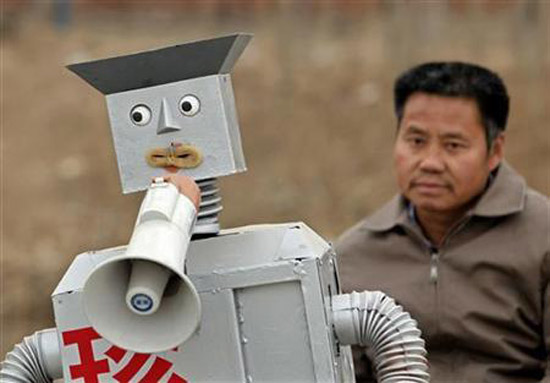Martin Ford has written a New York Times op-ed explaining why “China could well turn out to be ground zero for the economic and social disruption brought on by the rise of the robots.” Outsourcing used to mean moving jobs out of country, but more and more it will mean shifting them out of species. And no matter what the official line is, better jobs don’t necessarily await the displaced. The opening:
OVER the last decade, China has become, in the eyes of much of the world, a job-eating monster, consuming entire industries with its seemingly limitless supply of low-wage workers. But the reality is that China is now shifting its appetite to robots, a transition that will have significant consequences for China’s economy — and the world’s.
In 2014, Chinese factories accounted for about a quarter of the global ranks of industrial robots — a 54 percent increase over 2013. According to the International Federation of Robotics, it will have more installed manufacturing robots than any other country by 2017.
Midea, a leading manufacturer of home appliances in the heavily industrialized province of Guangdong, plans to replace 6,000 workers in its residential air-conditioning division, about a fifth of the work force, with automation by the end of the year. Foxconn, which makes consumer electronics for Apple and other companies, plans to automate about 70 percent of factory work within three years, and already has a fully robotic factory in Chengdu.
Chinese factory jobs may thus be poised to evaporate at an even faster pace than has been the case in the United States and other developed countries. That may make it significantly more difficult for China to address one of its paramount economic challenges: the need to rebalance its economy so that domestic consumption plays a far more significant role than is currently the case.•
Tags: Martin Ford

